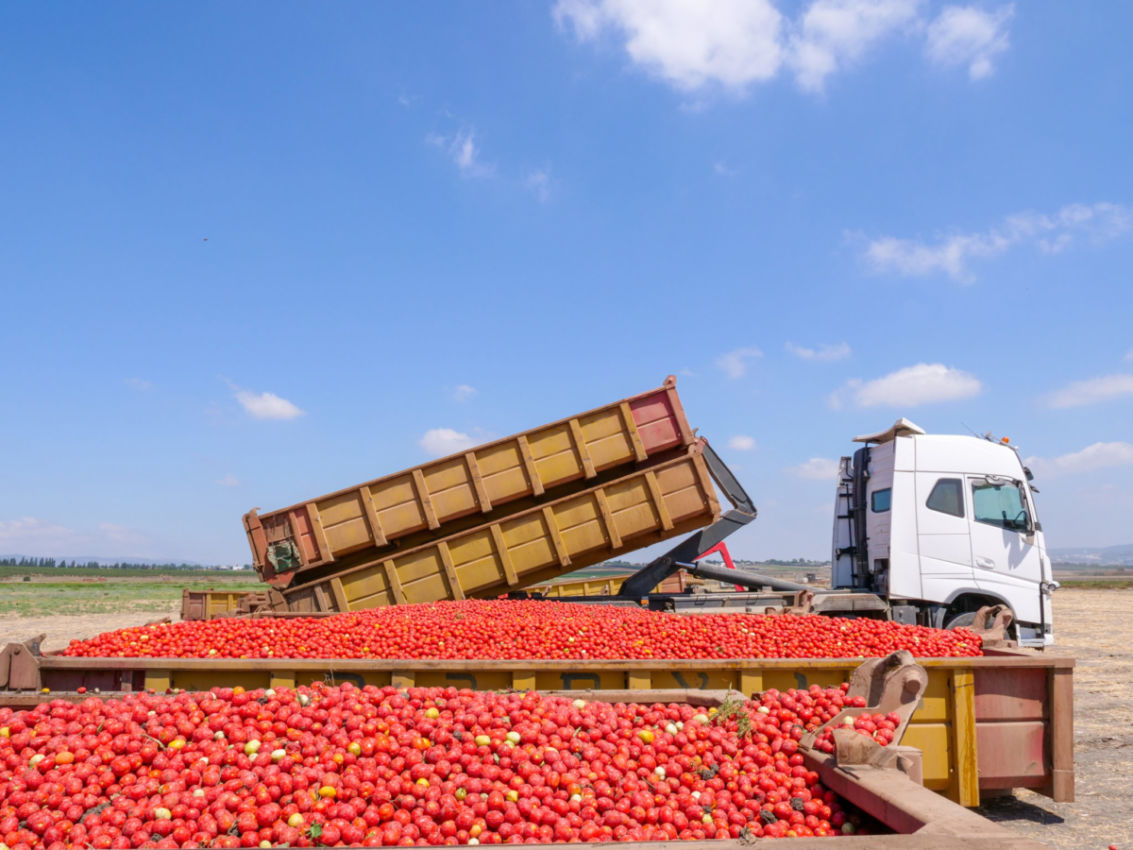
Italy’s 2023 tomato processing season wrapped up with 5.4 million tons of tomatoes transformed. Of this total, 2,798,312 tons were processed in the northern basin, encompassing Emilia-Romagna, Lombardy, Piedmont, Veneto, and the province of Bolzano.
Data from the Interprofessional Organization (OI) for Northern Italy Industrial Tomatoes shows the average yield of tomatoes grown under integrated production regimes in 2023 was 71.88 tons per hectare, slightly below the five-year average of 73.93 tons per hectare. Organic tomatoes yielded 47.41 tons per hectare, down from the previous five-year average of 62.87 tons per hectare. Despite lower yields, the processed tomatoes were of exceptional quality, with a Brix level of 4.87, one of the highest in the last decade.
NORTHERN ITALY’S TOMATOES IN FIVE SHORT FILMS
The superior quality of Northern Italy’s industrial tomatoes is the result of careful planning and a supply chain committed to sustainability. Addressing tomato quality inherently means addressing sustainability. This key aspect is highlighted in a five-episode docuseries, Truemato, available on a dedicated YouTube channel, produced by the OI.
Truemato aims to showcase the environmental, economic, and social sustainability of Northern Italy’s tomato supply chain through the perspectives of key stakeholders and on-site footage.
This unique narrative is part of the broader Tomato SAUCE—Sustainable Agriculture Understanding in Central Europe project, promoted by the OI for Northern Italy Industrial Tomatoes and funded by the European Union.
TRUEMATO: THE FIVE PILLARS OF TOMATO SUSTAINABILITY
Each of the five episodes of Truemato explores a different dimension of sustainability within Northern Italy’s tomato supply chain: a holistic approach to sustainability, integrated agriculture, reduction of CO2 emissions and water consumption, and social responsibility.
The OI promotes sustainable production through a holistic approach to quality. The environment is viewed as a complex and fragile ecosystem, and Northern Italy’s tomato farmers and producers are dedicated to its preservation at every stage of the supply chain, as well as safeguarding the social aspects of production. The first episode discusses these commitments.
Northern Italy’s tomato supply chain, which accounts for nearly 52% of Italy’s and 25% of Europe’s tomato production and processing, emphasizes sustainability from the field. About 90% of tomatoes are grown under voluntary integrated production guidelines, while the remaining 10% are organically cultivated, primarily around the Po Delta Park between Emilia-Romagna and Veneto, Europe’s largest organic tomato growing area since 1985.
In the second episode, farmers explain their choice of integrated agriculture, a system that minimizes fertilizer and agrochemical use, conserves water, and employs renewable energy. They detail how these practices produce strong, flavorful tomatoes naturally.
The third episode addresses CO2 emissions and the industry’s efforts to reduce them over the years. The average distance between cultivation fields and processing plants is just 60 km, eliminating the need for refrigeration and keeping truck emissions to a mere 7.8 kg of CO2.
The fourth episode explores advanced irrigation solutions adopted by Northern Italy’s tomato industry: soil moisture sensors for precise irrigation, drip irrigation systems to prevent waste and reduce water usage by 20% compared to traditional methods, and ongoing research in experimental fields to test new methodologies.
The fifth episode focuses on social responsibility. It highlights mechanical harvesting, which has increased productivity and introduced new skilled roles, ensuring fair, safe, and healthy working conditions, fully respecting workers’ rights, and combating exploitation. Additionally, it presents a shared governance model that promotes fairness and equitable value distribution across the supply chain, from farmers to processing industries.
